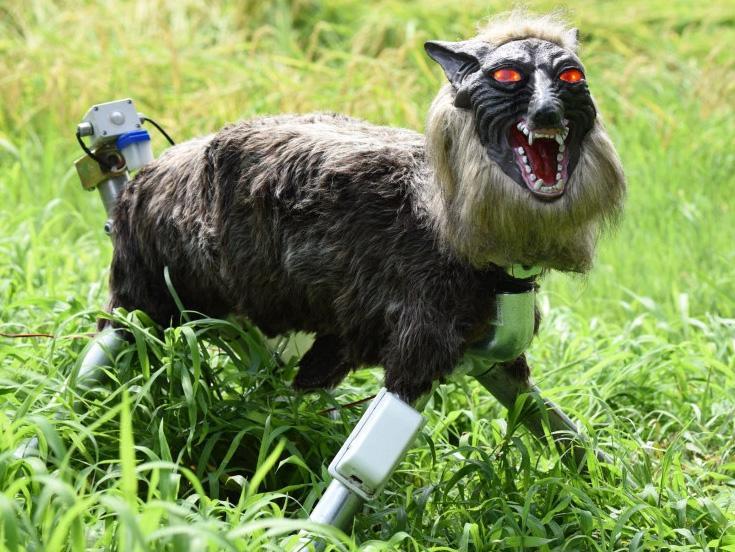Robotic 'Super Monster Wolf' deployed to protect Japan's crops from wild boars
What could possibly go wrong?
Japanese farmers are using terrifying robotic wolves with beaming red LED eyes to scare off wild boars, deer and other pests from grazing on the country's rice and chestnut crops.
The "Super Monster Wolf" stands at 50cm tall, is 65cm long and runs on rechargeable solar-batteries, using motion-sensors to detect when other mammals approach and letting out an alarming primal howl in response.
The robo-wolf can cover distances of up to half a mile and has been used in trials to patrol fields near Kisarazu City, Chiba, as a deterrent to pests, effectively acting as a moving scarecrow.
In addition to its satanic stare, the creature features a realistic fur hide and snarling rubber jaws.
Chikao Umezawa of the Japan Agricultural Cooperative, the man who commissioned it, said he has seen a significant drop in the number of crops devoured by animals since the beast was unleashed.
It is about to enter mass production and will soon be made commercially available, retailing at 514,000 yen (£3,478).
Farmers unable to afford one will be able to lease their own mechanical lupine on a month-by-month basis.

Tragically, real wolves were rendered extinct in Japan in the early 19th century, making the project necessary.
Companies like Boston Dynamics and Festo in Germany have led the way in developing robotic animals, with animatronic snakes, butterflies, penguins and horses developed using artificial intelligence.
AI represents an exciting proposition for the future of agriculture, with colonies of robot bees being used to pollinate flowers only the latest idea to be entertained.
Join our commenting forum
Join thought-provoking conversations, follow other Independent readers and see their replies
Comments
Bookmark popover
Removed from bookmarks